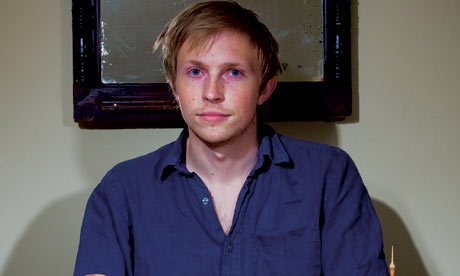
At the age of 18, elated that I'd just finished my A-levels, I went InterRailing through Europe with two friends. About halfway through the trip we stayed at a hostel in Bratislava, and for some reason I couldn't get to sleep. I felt restless. I got up and decided to do press-ups. I remember counting them to myself. I got to 10 and felt pain - almost like toothache - in my lower jaw. I remember thinking I must have got something stuck in my mouth. It was like eating glass.
The pain quickly became intense. I felt a snapping, but I can't remember anything else. Apparently, I started stumbling around. I was wearing a woollen hat which I was clutching and pulling right down in front of my face.
My friends called an ambulance, and as the doctors wheeled me into surgery they said I'd had a brain haemorrhage. My friends called my family who flew out straight away.
I was in an induced coma for a week, during which I was flown back to London. No one really knew why I had the stroke. At school I had been in the football first 11. I didn't smoke or take drugs. The doctors guessed a blood vessel had burst, but they couldn't say for certain.
When I came out of the coma I couldn't speak. In my head I felt normal, and I was so desperate to tell everyone around me what I was thinking; to ask what had happened to me. I thought I had died. But I would open my mouth and just groan.
Physically I was in a bad way, too. At first I could not walk or even stand up. I started physiotherapy straight away. I had difficulty, and still do, with balance and using my right arm.
Within a few weeks my speech had progressed - but the voice still wasn't mine. The grunts had, inexplicably, developed into a thick Russian accent. In my head my voice was normal, but the words came out strangely. I would even structure sentences in a Russian way: instead of saying, "Can you put the kettle on?" I would say, "Put kettle on." I would also get simple words confused - "coffee seeds" instead of "coffee beans". But at that point I was just glad I could talk at all.
My friends and family were so relieved that I had survived. The accent was one thing we were able to laugh about. I never stopped to reflect on what had happened to me - I just focused on taking one day at a time and getting better.
As a child I lived in various countries, although I always had a normal English accent. I did live in Russia for a couple of years from the age of two. But the doctors didn't think that would have been an influence. For a while they thought I may have Foreign Accent Syndrome, a rare medical condition of which there are just over 50 documented cases. The thinking is that certain parts of the brain may control linguistic functions - including how we pronounce words.
They also told me that it was particularly rare for this to happen to someone so young, and asked me to demonstrate at a medical convention in a huge auditorium. There were about 500 doctors in the room. The seats were full and there were people standing in the aisles. I had to repeat sentences such as "Jack fell off a speedboat" and they would gasp and write things in notebooks. It all felt quite surreal.
After that I had speech therapy for a year, which involved repeating a lot of limericks in an English accent. I bought a Dictaphone and recorded myself reciting them over and over. Now I listen to those tapes and laugh. But you can hear the Russian getting fainter with each tape.
At the end of the year I told the doctors I wanted to go to university. They advised me I wasn't well enough but I went anyway - to Leeds. When I was tired, my speech would start to slur, but I learned to manage my fatigue, and by the time I graduated last summer, I felt much more like my old self.
Looking back, I still can't quite believe what happened to me. Even now I get tired, and my arm hasn't recovered entirely. But the speech therapy has worked. The Russian accent still comes out occasionally, but only when requested.
• Do you have an experience to share? Email experience@theguardian.com

